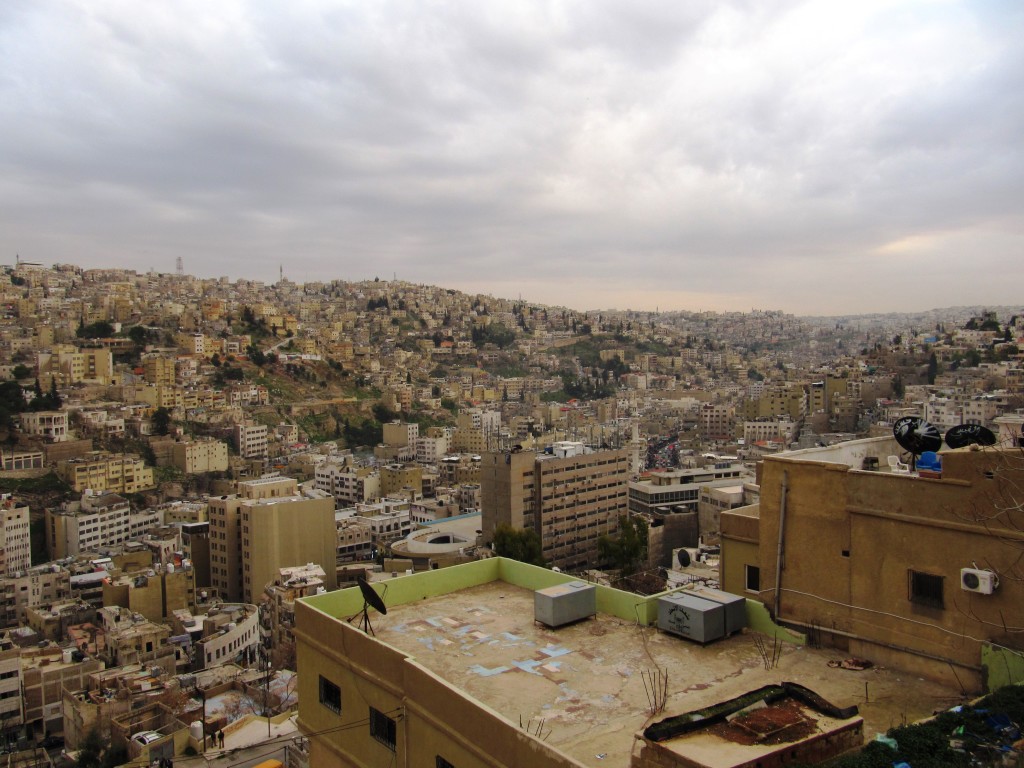Minying Huang, Amman, Jordan, SSH Blog Correspondent
 For women in Amman, street harassment is a daily reality and, due to its prevalence, one to which many have grown de-sensitized. Though I still feel anger that it occurs, it’s frightening how easily I can brush off verbal and physical harassment and how little emotional impact it has on me now. Equally, I realize that life would be exhausting if I were to let every catcall, every grope, and every micro-aggression get to me.
For women in Amman, street harassment is a daily reality and, due to its prevalence, one to which many have grown de-sensitized. Though I still feel anger that it occurs, it’s frightening how easily I can brush off verbal and physical harassment and how little emotional impact it has on me now. Equally, I realize that life would be exhausting if I were to let every catcall, every grope, and every micro-aggression get to me.
My internal reactions to incidents of harassment were very different when I first moved here from the UK at the start of October of last year: after being felt up twice in one night in the streets of downtown Amman, I remember feeling acutely uncomfortable, ashamed, and angry at myself for having remained silent as wandering hands touched me, shielded from public view by shopping bags. Despite knowing that victims of harassment shouldn’t have to feel shame or guilt for what is done to them, I couldn’t shake my unwarranted feelings of dirtiness and humiliation – showing that, on some level, I, along with many others, have internalized the damaging, socially-entrenched myths surrounding sexual harassment.
As a foreigner living here, and especially as a young woman of East Asian descent, it’s easy to fall into the trap of thinking that you are targeted for your racial difference and on account of common misconceptions regarding non-Arab women. Whilst this is certainly a factor that comes into play (and one that I hope to explore in future posts), it’s also clear that sexual harassment in Jordan is by no means solely limited to foreign women and it happens regardless of what you wear.
In 2012, a group of students at the University of Jordan created a short film titled ‘This is my privacy’ in an attempt to combat on-campus sexual harassment and draw attention to the issue. The original video was taken down but you can watch a re-uploaded version. It speaks volumes that Professor Rola Qawas, who supervised the making of the film, was dismissed from her post as Dean of the Faculty of Modern Languages after senior management deemed it a distorted representation of university life and an attack on the overall reputation of the university.
I’d like to emphasize that sexual harassment is a global phenomenon not exclusive to Jordan and the Middle East. I have encountered sexual harassment in the UK where I grew up; however, without wishing to generalize, I don’t think that it would be too far-fetched to suggest that cultural ideas of space and notions of “honor” perpetuate and intensify the problem here, reinforcing the adaptive behaviors women engage in to avoid putting themselves in vulnerable situations. As a result, men are able to continue exerting control over public spaces, and progress toward redefining these established boundaries is slow.
More often than not, sexual harassment is about power. In Jordan, where high youth unemployment is a major socio-economic concern, young people are becoming increasingly disillusioned with politics and worried about their future prospects. Restless, sometimes without the means to achieve independence and further their aspirations, the shabab – literal translation: ‘the youth’; commonly used to refer to young men in the streets – may be inclined to resort to expressions of dominance in communal areas in order to offset the sense of powerlessness found in other aspects of their life.
The question is: how do we bring this conversation into the public sphere without compromising the safety of those wishing to effect change? How do we promote the idea that public spaces are not male spaces but shared spaces accessible to people of all genders? The social and legal framework here in Jordan fails to protect women from harassment. Instead, society attaches stigma and shame to the victims. The law does not explicitly condemn the act, with lawmakers neglecting to clearly define the crime. The law states that offenders can be punished for committing violations against “modesty” and “humanity”, but the use of such nebulous and subjective terminology makes it difficult for victims of harassment to actually achieve justice.
The repercussions of speaking out impose a culture of silence on Jordanian society. Few people openly discuss the realities of sexual harassment, and those that do are subject to public criticism. Yet, in private spaces, the consensus is that something needs to be done to tackle the underlying causes of this recent phenomenon in response to a rapidly increasing number of Jordanian women setting foot outside the confines of the home and entering the public space. When a woman dares to occupy the public space and asserts her right to an equal share in it, the ownership of her body should not then be up in the air and up for grabs.
Minying is a 19-year-old British-born Chinese student from Cambridge, England. She is studying for a BA in Spanish and Arabic at Oxford University and is currently on her Year Abroad in Amman, Jordan. You can follow her on Twitter @minyingh.
